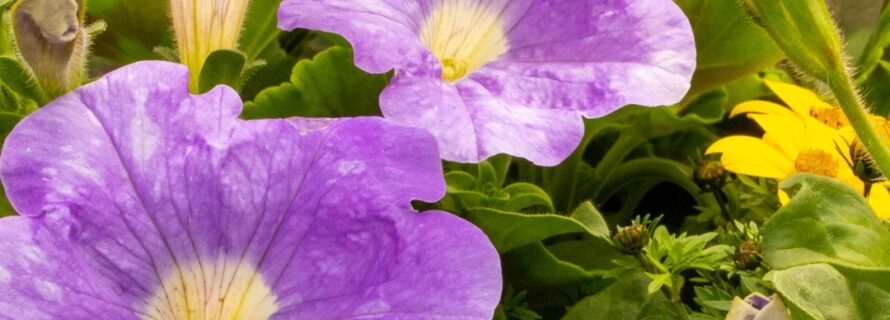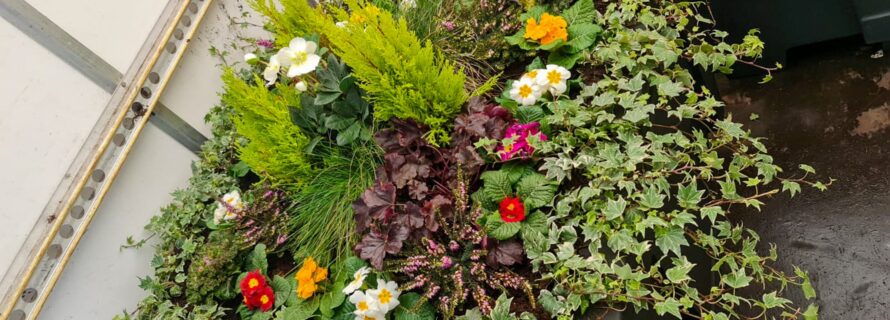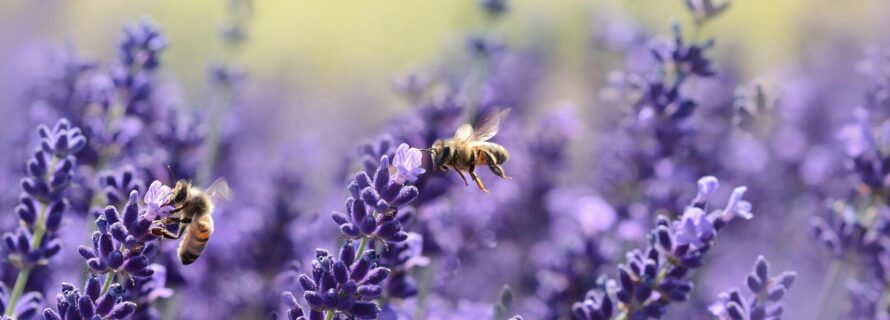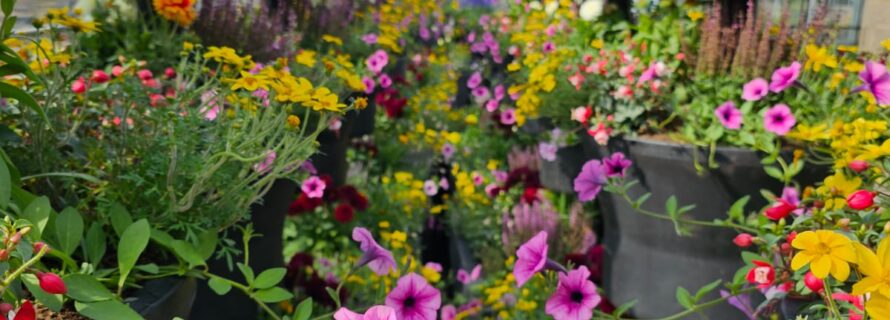A Gloucestershire town has twice won Gold awards in the Heart of England in Bloom competition as well as the best small town category, and its summer floral displays have been at the heart of its success.
Stonehouse, which describes itself as a gateway to the Cotswolds and the Stroud Valley, has been using Plantscape’s services since 2014 and its town leaders say the flowers have a very positive impact on the wellbeing of residents and visitors.
Both the town council and its In Bloom group have commissioned Plantscape to provide the displays, with the two organisations ordering more than a hundred baskets and planters between them this year.
Stonehouse Town Council has also used Plantscape’s services during the festive season, with the town also enjoying its popular solar Christmas trees since 2016.
Debbie Curtis, town councillor and In Bloom committee member, said: “The flowers get many positive comments both in person and online. We are often approached by members of the public who go out of their way to say thank you and to comment on how much they appreciate the flowers when we are working around the town. We also have lots of schools, businesses, care homes and community groups taking part in Stonehouse in Bloom – it’s a real community effort.
“Last year a woman in Frampton-upon-Severn wrote to the Stroud News and Journal to say how much she enjoyed the flowers when she came into Stonehouse to do her shopping.”
The news about the flowers’ impact on wellbeing follows the publication this month of a scientific report showing that a weekly two hour ‘dose’ in nature has a significant positive impact on mental and physical health.
The study was carried out by the University of Exeter Medical School following interviews with 20,000 people in England.
Of those who spent little or no time in nature, a quarter reported poor health and almost half said they were not satisfied with their life, a standard measure of wellbeing. In contrast, just one-seventh of those who spent at least two hours in nature said their health was poor, while a third were not satisfied with their life.
“What really amazed us was this was true for just about every group we could think of,” said
Dr Mathew White, at the University of Exeter Medical School, who led the study.
The benefits of a two-hour dose were the same for both young and old, wealthy and poor, and urban and rural people, he said.
It also applied to those with long-term illnesses and disabilities, White said. “So getting out
in nature seemed to be good for just about everybody. It doesn’t have to be physical exercise – it could be just sitting on a bench.”
If confirmed by future research, two hours in nature could join five a day of fruit and
veg and 150 minutes of exercise a week as official health advice.






